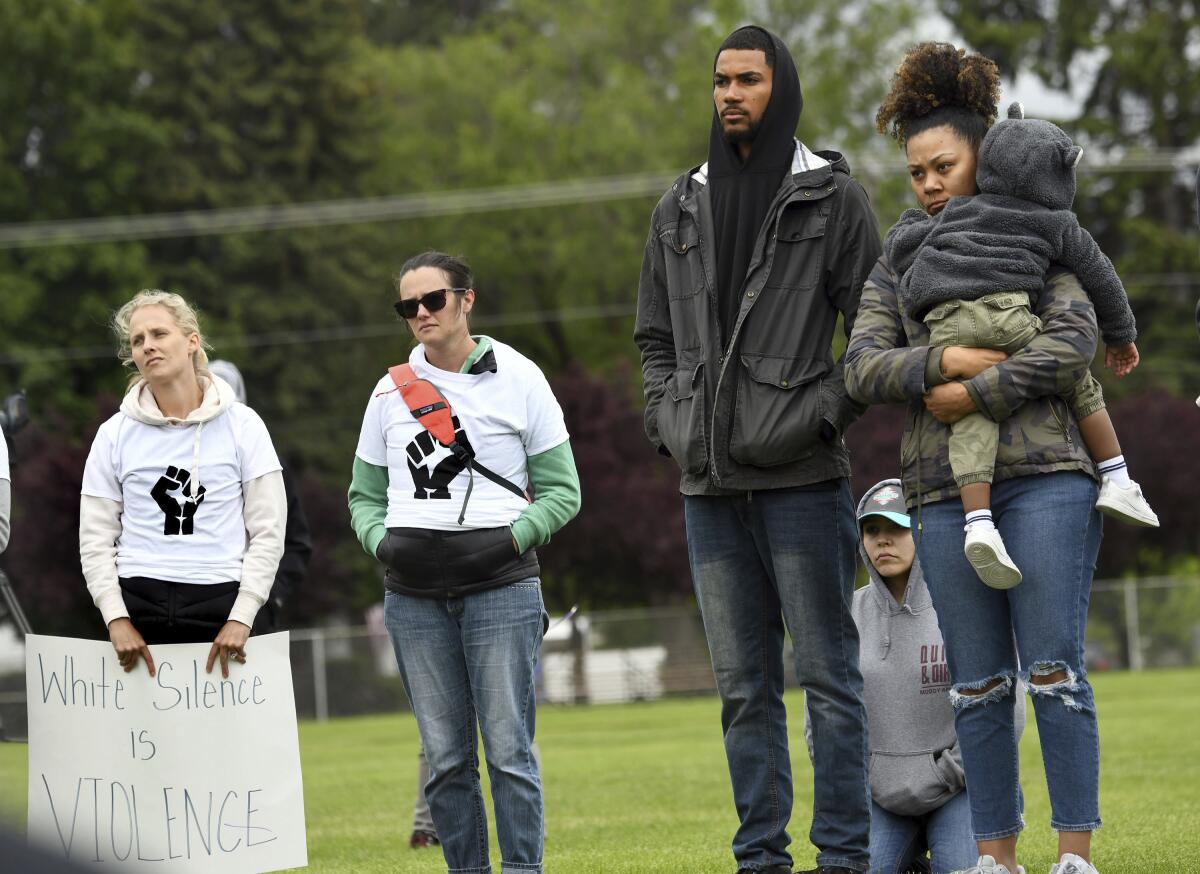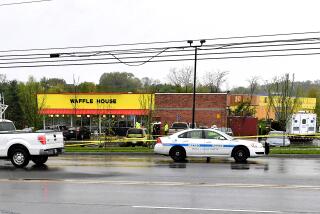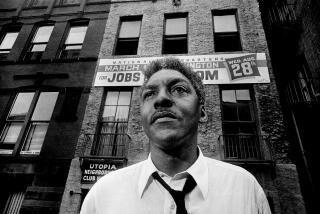Op-Ed: My Idaho town shows how the Black Lives Matter movement can resonate in deep red communities

Last week, my dad readied his hunting rifle to defend our family against the possibility of chaos in the streets coming to our door. Downtown streets half a mile from our home in Coeur d’Alene, Idaho, were filling with citizens bearing assault rifles to protect local businesses from harm. Neighbors had been trading rumors all day about “rioters” coming from out of town, and if they showed up, there would clearly be a fight.
Here, guns are sacred, government is suspect, freedom is king and the American dream is alive. In my 10th-grade English class, the majority of students chose the 2nd Amendment as the most important right we have.
And yet. Something curious is happening here.
My Instagram feed — nearly all posts from Idaho high school students, typically conservatives — is filled with support for Black Lives Matter. A classmate said he “100% supports the BLM protests in retaliation of years of government overreach, unqualified police officers, and countless murders….” Students are organizing protests, soliciting donations and expressing solidarity with the cause. As importantly, we are engaging one another in thoughtful discussions on this issue, which remains uncomfortable for many here.
It would be difficult to overstate how shocking it is to see my town display this level of support for a cause associated with liberalism and one that feels very far away from our insulated community.
Racism is not an issue that usually resonates among my peers. If this kind of support for Black Lives Matter is happening here, it’s happening everywhere and in places you wouldn’t expect.
And it’s not just young people. Even the armed “patriots”— as the Coeur d’Alene Press called them — squaring off against potential looters are quoted as saying they support the basic reasons for the protests, are distraught by the death of George Floyd while in police custody in Minnesota and simply want to prevent unnecessary violence and destruction.
After a second night of both groups peacefully coexisting downtown, some statements made to the press stood out. Teresa Balanesi, a dog trainer carrying a .380-caliber handgun, said she showed up to support both sides. “I believe in the 1st Amendment, the right to voice your opinion, and I believe in the 2nd Amendment, the right to bear arms.” Conrad Nelson, a member of a veterans group there to keep the peace, said, “We’re glad they are protesting.” He added: “They have a voice that needs to be heard .… It’s the people that cause problems that we’re here to stop.”
This moment of disparate Americans finding common ground and common outrage against injustice presents an opportunity, and I worry that we’ll miss it. The protesters of the civil rights movement succeeded in part because they had specific requests — equal protection under law, guaranteed by the 14th Amendment, and the right to vote, guaranteed by the 15th Amendment. They demanded the end of Jim Crow segregation and they pushed for the Civil Rights Act of 1964 and the Voting Rights Act of 1965, among others.
Sometimes I hear clear demands from the current protesters in my town, set off by the death of Floyd. For example, their insistence that all four officers involved in Floyd’s death be charged has now been realized. But while so many of my schoolmates are signing petitions and expressing support, conversations around real solutions for the future — at least here — are largely absent.
The COVID-19 pandemic, while devastating, has presented a unique opportunity to further the protesters’ cause. Because of the quarantine, many of us have nowhere to go and nothing to do. If the racial justice movement can unite around specific, detailed solutions that could be implemented across the country, we could spend our unexpected free time working to bring about concrete changes at the local, state and national level.
Students and other citizens from rural and urban areas and from coast to coast need to do more than just show up at protests that bring much-needed attention to systemic racism and police brutality. We need to come together to insist on precise reforms that can change history.
I’m a white, 17-year-old girl from Idaho, and I certainly don’t have the answers. But I do know that I support the universal wearing of body cameras by police, and long-overdue investment in education and economic development in poor and minority neighborhoods. We urgently need leaders to emerge from the movement so it can coalesce around realistic and effective solutions that can be supported by a majority of Americans.
In 10th grade, I chose the right to assemble — enshrined in the 1st Amendment — as the most important right we have as Americans. It’s the right that protects and allows for all of the others. No matter what, 2020 will go down in history. May it be remembered for being a year of action and purpose, in which we pursued real and permanent solutions to systemic racism, accomplishing what not even a pandemic could: uniting us.
Lilian Smith is a rising high school senior in Coeur d’Alene, Idaho.
More to Read
A cure for the common opinion
Get thought-provoking perspectives with our weekly newsletter.
You may occasionally receive promotional content from the Los Angeles Times.






